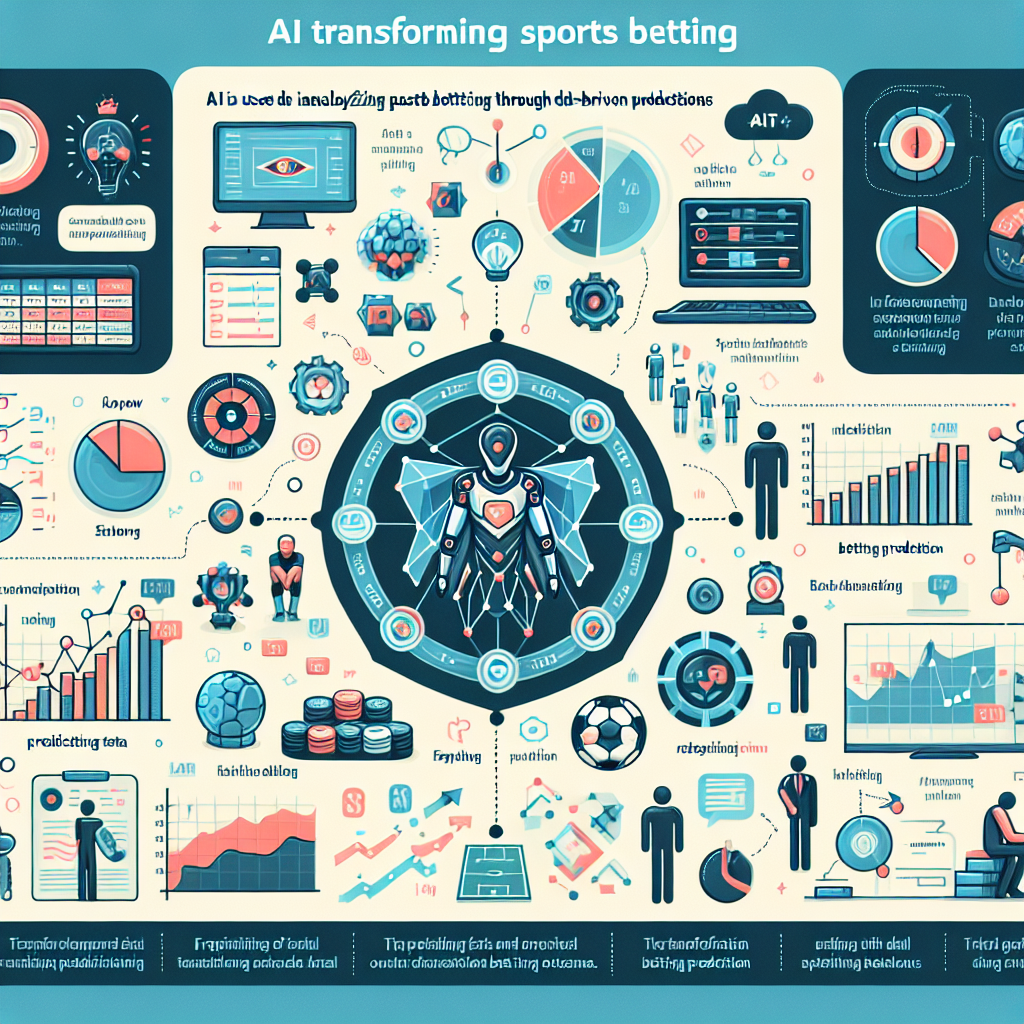
The landscape of sports betting has evolved significantly, moving beyond gut instincts and basic stats to embrace artificial intelligence and data analytics. These technologies have brought a level of sophistication that was once exclusive to Wall Street right into the hands of sports enthusiasts.
At the core of this transformation are AI algorithms that can swiftly process vast amounts of data, ranging from historical game statistics to player performance metrics and even social media sentiment. This shift has ushered in a more data-driven approach to predicting sports outcomes, offering insights that go beyond human analysis.

Recent studies have shown that AI models consistently outperform human analysts in sports predictions, boasting accuracy rates that surpass traditional methods. The key lies in AI’s ability to detect subtle patterns and trends that might elude even seasoned experts, giving bettors a competitive edge in their decision-making process.

Real-time data analysis has emerged as a game-changer in sports betting, allowing platforms to adjust predictions on the fly during live games. Factors like momentum shifts, player fatigue, tactical adjustments, weather conditions, and injuries are now considered in real-time, enabling more informed in-game betting decisions.

Machine learning algorithms have further personalized the sports betting experience by analyzing user behavior to offer tailored insights and recommendations. This personalization extends beyond maximizing wins to include identifying potentially problematic betting patterns and providing appropriate guidance to promote responsible betting practices.
As we look ahead to 2024, several trends are reshaping sports betting analytics, including the integration of generative AI for enhanced predictive modeling, advanced visualization tools like interactive probability maps and real-time performance dashboards, and improved data integration by incorporating social media signals and player biometric data.
Despite these technological advancements, human judgment remains crucial for successful sports betting. AI and data analytics should be seen as tools that complement decision-making rather than replace it entirely. The most effective strategy combines technological insights with traditional sports knowledge and responsible betting behavior.
Prior to placing any bets, it’s advisable to diversify analysis across multiple AI platforms, set clear bankroll limits, look for value bets, and track betting history alongside AI predictions to refine strategies over time. Remember, responsible betting practices should always take precedence, with AI tools serving as decision support systems rather than guarantees of success.
As AI continues to revolutionize sports betting, it’s vital to leverage these tools wisely while maintaining a balanced and informed approach to wagering. While AI can provide valuable insights, it’s essential to practice responsible betting and use these technologies as part of a broader strategy rather than relying solely on predictive models.
📰 Related Articles
- How to Make Winning NBA Predictions in Sports Betting
- Expert Predictions for Canelo vs. Scull Fight: Sports Betting Insights
- Top 9 Online Betting Sites for Sports Enthusiasts: Find Your Ideal Bookie
- The Ultimate Guide to Predicting Sports Betting in the Kentucky Derby 2022
- Strategies and Predictions for Live Betting on Cricket Match Showdown
📚Book Titles
- Winning Tips for Esports Betting: Turning Virtual Swords into Real Riches
- AI on the Racetrack: Using ChatGPT for Horse Racing Predictions
- Winning Strategies: The Comprehensive Guide to Sports Betting and Developing Your Tipping System
- AI Strategies for Winning the Lotto: Artificial Intelligence Techniques for Predicting Lottery Outcomes



